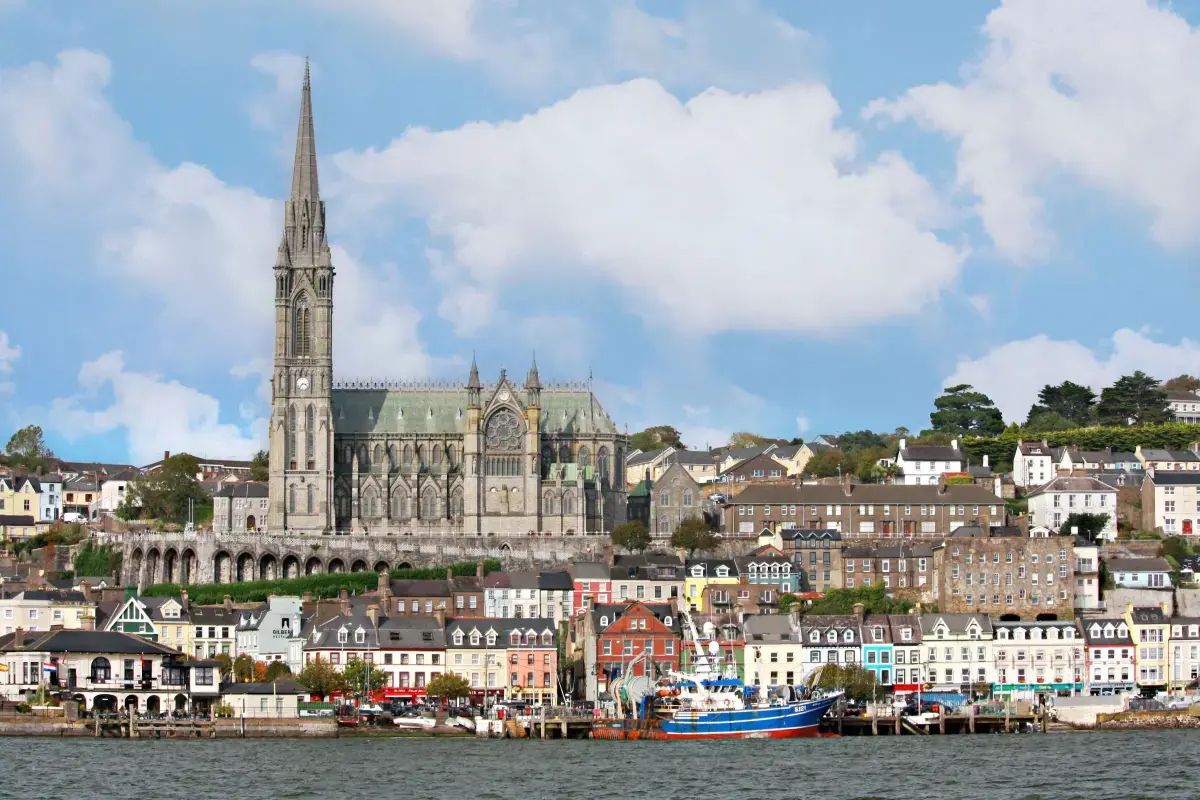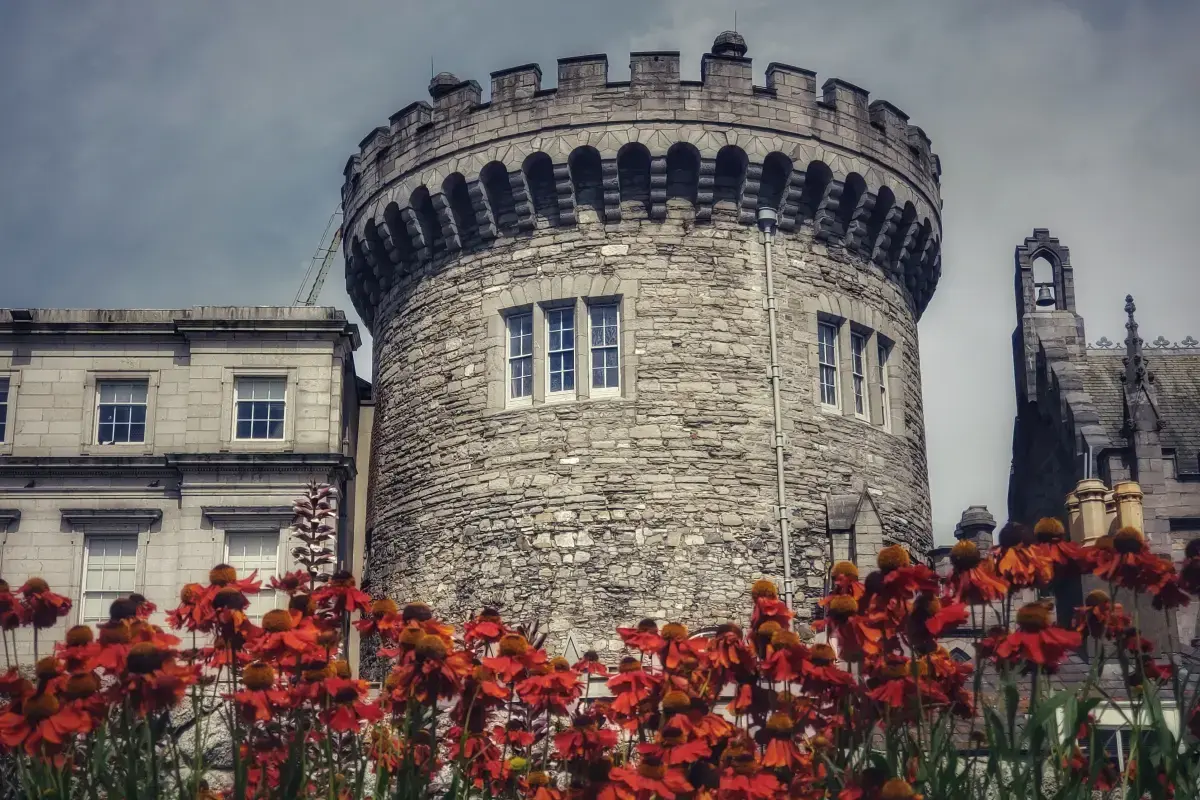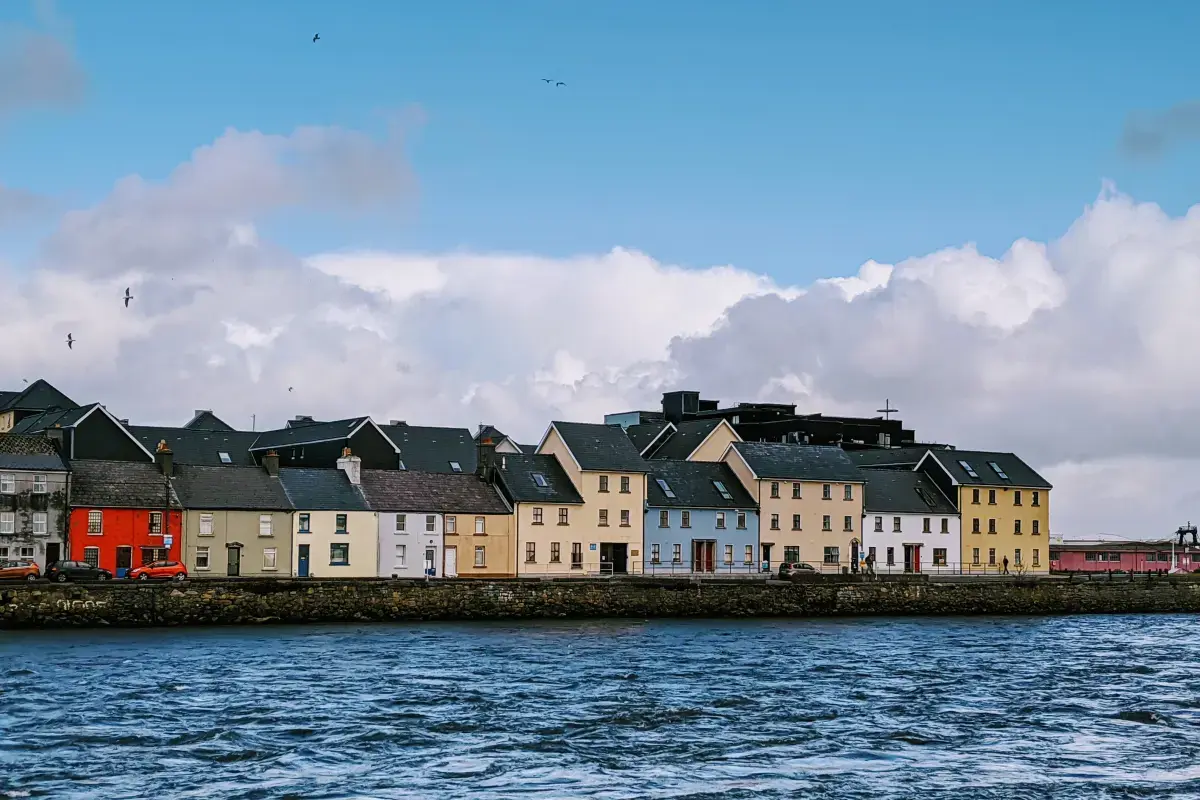- Anesthesiologist
- Obstetrician and Gynecologist
- Psychiatrists
- Surgeons
- General Internal Medicine
- Physicians
- Ophthalmologists
- Orthodontist
- Product Manager
- Artificial Intelligence & Machine Learning (AI/ML) Engineer
- Full-Stack Developer
- Cloud Architect
- DevOps Engineer
- Blockchain Engineer
- Software Architect
- Big Data Engineer
- Internet of Things (IoT) Solutions Architect
- Data Scientist
- Cyber Security Architect

Moving to Ireland in 2025
Step by step guide on migrating and relocating to Ireland in 2025?
Use our Guide to find all the moving information you may need if you are thinking of moving or working in Ireland.
People relocate and move to Ireland for a number of reasons, many of which are associated with the country’s attractive quality of life and robust economy. Starting with the economy, unemployment rates in Ireland have reportedly been some of the lowest in Europe for over a decade now. With a steady GDP growth, the country has become an attractive prospect for those looking for economic stability and opportunity. This strong economy combined with the relatively low cost of living make Ireland an attractive prospect for those looking to move or relocate to a new country. In addition, Ireland has a rich culture and a cosmopolitan way of life. English is the native language spoken in the country, which makes it easy for newcomers to adjust to their new home. There is also a diverse population, with a wide range of religions, accents, and backgrounds, making it an exciting and dynamic place to live. The countrys stunning natural beauty, nightlife, and excellent education opportunities also attract many newcomers. The countrys picturesque landscape, coastline, and rolling hills make it a dream destination for outdoor enthusiasts. Meanwhile, the vibrant and diverse cities offer plenty of nightlife options, from traditional pubs to modern bars and clubs. Finally, Irelands renowned education system includes a range of high-quality universities and schools, making it an attractive option for those looking to study. Overall, Ireland has a great deal to offer for people who are looking for a new home. For those seeking economic and educational opportunities, an exciting culture, and stunning landscapes, Ireland is the ideal destination.

Gigs
Cost of Moving to Ireland
1. Visa: Depending on your nationality, you will need either a visa or an Irish residence permit to live in Ireland. Generally, you’ll need either an Employment Permit, a Long Term Residence Permit, or a Appropriate Work Permit. The cost of these documents varies depending on the type of permit, but can generally range from €100- €500. 2. Flight: Depending on your current location, you may have to purchase a flight to Ireland. International flights from the U.S. to Dublin can cost anywhere from around $300 to upwards of $1000. 3. Accommodations: Depending on your budget, the cost of accommodations in Ireland can vary greatly. Hotels and bed and breakfasts are both generally quite affordable in most places, but the cost of renting an apartment or house can vary significantly. Generally, the prices are quite reasonable, but you’ll want to research the area before committing. 4. Tax: Irish taxes are quite high and you’ll need to register with Revenue and Revenue Online to get a PAYE number and ensure your tax compliance. This can be done online and is typically free, but you may need to pay a tax adviser to handle the registration process. 5. Utilities: You’ll also need to arrange your utilities, such as electricity, gas, and water. The cost of these services will vary depending on your usage, but you may be eligible for discounts depending on your situation. 6. Banking: If you’re planning to stay in Ireland long-term, you’ll need to open a local bank account. Many banks offer free accounts for newcomers, but may charge for certain services. Be sure to ask your bank about any fees or special services that may be available. 7. Moving: Moving your possessions to Ireland can be expensive depending on how much you’re bringing. You can either hire professional movers to handle the job, or you can arrange to have your items shipped by sea freight or air freight. 8. Personal Expenses: Of course, you’ll need to factor in your own personal expenses, such as food, clothing, and household items. These can vary greatly depending on your lifestyle, but you’ll want to make sure you have enough saved up for your transition before making the move to Ireland.
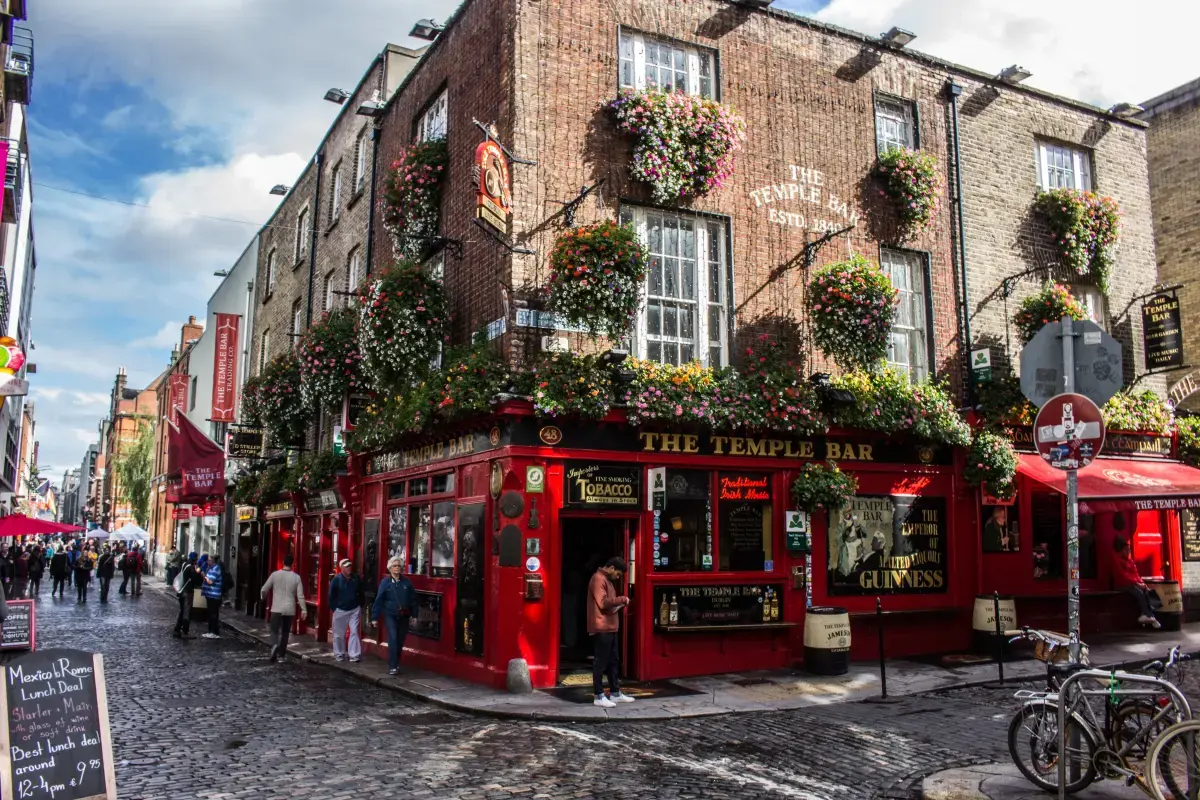
Jobs
Best Jobs in Ireland
Within Ireland, the most popular jobs migrants tend to apply for are within the technology, engineering, and financial fields. These three sectors are in high demand, and offer competitive salaries with career advancement opportunities. Technology: This sector has seen the highest growth in the past five years, and includes roles such as software developers and engineers. The average salary for technology jobs in Ireland is around €50,000 to €70,000 per year, depending on experience and education. Engineering: With the rise in start-ups, this sector has seen massive growth in the past years. Jobs such as mechanical engineers and civil engineers are among the most sought-after roles in the country, with salaries ranging from €45,000 to €99,000 depending on the position. Financial: The financial industry is ever-expanding in Ireland, and many foreign migrants seeking to take on a financial role will find a variety of positions available, such as accountants and financial managers. Salaries for these roles generally range from €50,000 to €100,000, depending on experience and qualifications.

Volunteers
Weather in Ireland
Generally speaking, the climate of Ireland is temperate maritime meaning it has mild winters, cool summers, and a lack of temperature extremes. It is also relatively wet and relatively windy. Spring usually lasts from March to May and usually consists of mild temperatures and heavy rainfall. Summer generally runs from June to August and typically has warm and sometimes hot temperatures. As the season progresses rainfall can be heavy so thunderstorms often occur. Autumn, which runs from September to November, is usually characterised by more mild temperatures and more rainfall. Winter, which runs from December to February, is usually the coldest time of the year with temperatures often dropping below freezing. Snow is quite common but typically tends to settle only for short periods at a time. Rainfall is usually frequent, but not as heavy as spring and autumn.
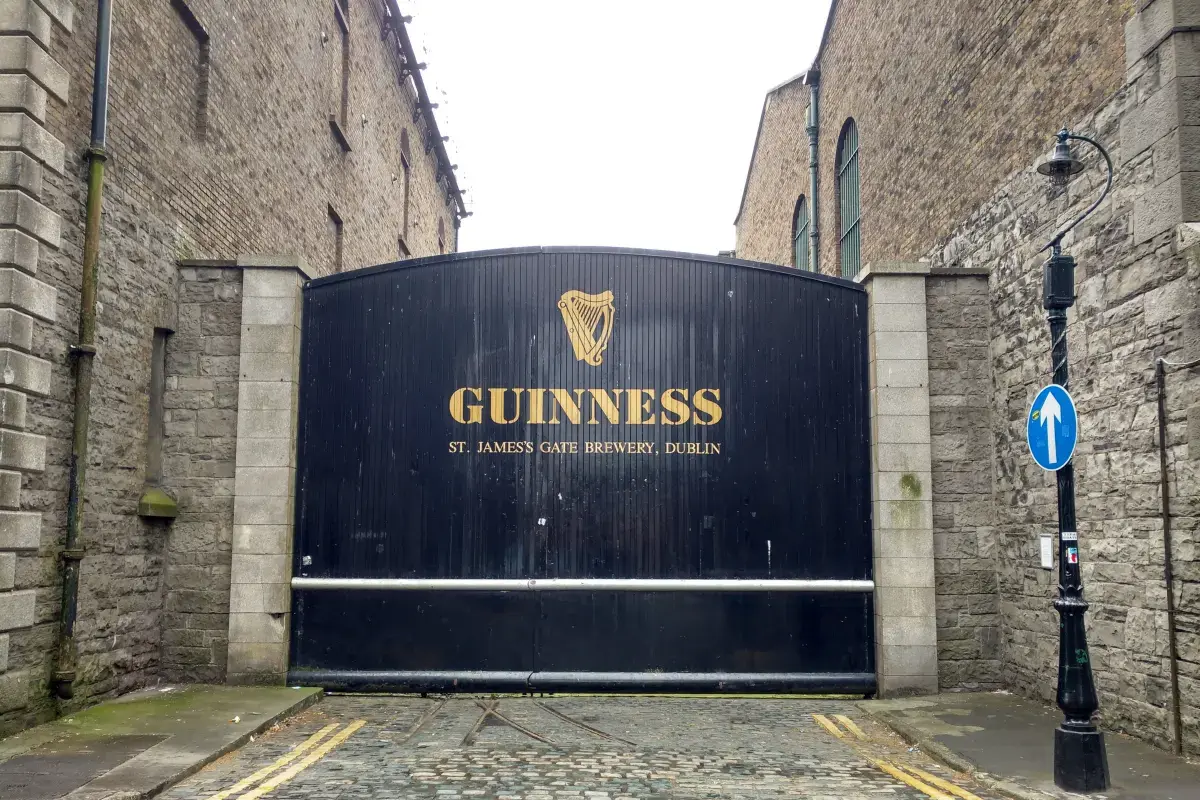
Promote
Tax & Welfare System in Ireland
The tax system in Ireland refers to the different taxes collected by the Irish government from individuals, companies, and other bodies. The system is based on a progressive taxation policy and consists mainly of income taxes, which are the largest source of government revenue. Other taxes include corporation taxes, capital gains taxes, stamp duty, and taxes on wealth, capital acquisitions, and betting and gaming. Ireland’s Social Welfare system provides financial support to those in need. This includes unemployment benefits, pensions, family income supplements, illness and injury benefits, rent allowances, allowances to carers, and judgments in court cases. The system also provides supplementary funding for those in need in areas such as education and health. The government also provides direct payments to assist people in meeting the costs of rent and medical expenses, as well as non-cash benefits such as free travel and electricity charges. In addition, the Department of Social Protection provides funds for childcare services, jobseeker’s benefit, supports for people with disabilities, and housing and community services.
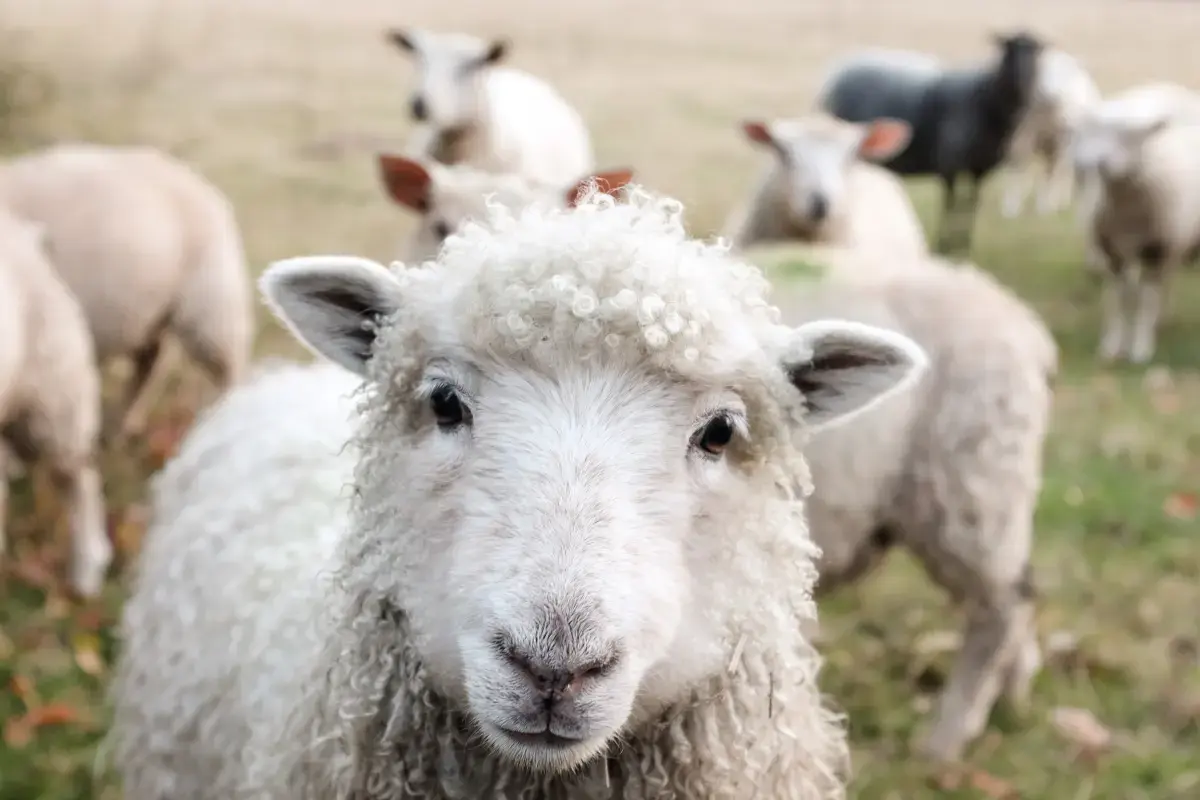
Holidays in Ireland
In Ireland, there are nine national holidays each year. National holidays occur annually on the same date and all aim to celebrate important days in the nations history. These holidays are many of the most important days in the Irish calendar and are celebrated publicly. 1. New Years Day - This holiday marks the start of the new year and takes place on 1st January. 2. St. Patricks Day - A celebration of the patron saint of Ireland, this is held annually on the 17th March. 3. Easter Monday - This holiday celebrates the resurrection of Jesus and is typically on the first Monday after Easter Sunday. 4. May Bank Holiday - This day marks the first Monday of May and is a public holiday. 5. June Bank Holiday - This holiday marks the first Monday of June and gives citizens a day off work. 6. August Bank Holiday - This is the first Monday of August and is the summer break for most of Ireland. 7. October Bank Holiday - This holiday marks the first Monday of October and an extra day for visitors to explore Irelands attractions and culture. 8. Christmas Day - This holiday marks the birth of Jesus and takes place on the 25th December. 9. St. Stephens Day - This holiday marks the day after Christmas and is celebrated on the 26th December.

Where to Live in Ireland
The most densely populated areas of Ireland and the places where the majority of jobs are found are around the major cities of Dublin, Cork, Galway, Waterford and Limerick. These cities are major centres for commerce, finance and business and offer a wealth of job options. Dublin, the capital of Ireland, is by far the largest of the cities and is home to almost a quarter of Irelands population. The city is the main hub for finance, business, technology and healthcare and the main centre for jobs in the country. Its population is over a million and its economic activity accounts for over 40% of Ireland’s GDP. Cork is the second-largest city and is situated on the south-west coast of the country. It has a population of approximately 200,000, and it is home to many prominent commercial, financial and educational institutions. The employment opportunities available in Cork are mainly in the areas of commerce, technology and medical services. Galway is located on Irelands western coast and is one of Irelands most picturesque cities. It has a population of about 80,000 and offers job opportunities in the areas of retail, hospitality, technology, banking, finance and education. Waterford is a mid-sized port city with a population of about 50,000 and is home to many established business and financial institutions. It is particularly known for its pharmaceutical and medical technology companies and is well-connected to the rest of Ireland by road and rail. Limerick is one of the main cities on the west coast of Ireland and has a population of approximately 95,000. The city is well-known for its education institutions and high-tech companies. Job opportunities available in Limerick are mainly in the areas of finance, engineering, education, retail and tourism.

Sports & Recreation in Ireland
Ireland is renowned for its sporting culture and has a wide array of popular sports, ranging from Gaelic games through to football, running and surfing. Gaelic Games: The most popular and iconic of these are Gaelic games, which consist of Gaelic Football, Hurling and Camogie. Gaelic Football is played on a pitch roughly the size of a rugby field, but with a typical GAA goal. The game involves two teams of 15 players with the aim of the game to either kick or punch the ball over the crossbar for one point, or through the uprights for three points. Hurling and Camogie are very similar sports, but whereas Hurling uses a stick with a flat surface at the end, Camogie uses a stick with a sharp edged hook at the end. Soccer/Football: Association Football, known more widely as ‘Soccer’, is also hugely popular in Ireland with the Republic Of Ireland’s international team a common thought on the streets. Soccer is a team sport that is played with two opposing teams of 11 players, with the aim of the game to put the ball into the other team’s goal. Running: The running culture in Ireland is huge and a great way to both stay fit and make friends. Road running events take place frequently, with a large variety of road races taking place around the country regularly throughout the year. There are also numerous well-organised trail running events, especially in the hills of Munster, Connacht and Ulster. Surfing: Surfing is quite popular in Ireland, with many spots that can handle large swells and provide the perfect wave for surfers of all levels. The most renowned spots for surfing can be found in Donegal, Galway and Cork, with the latter known for its surfing culture. As well as surfing, other water sports such as SUP, kayaking, sailing and windsurfing are very popular in Ireland. Other Sports/Recreational Activities in Ireland Other sports and recreational activities that can be found in Ireland include Golfing, Cycling, Adventure Sports, Horse Riding and Archery. Ballroom and Latin Dancing is a popular social activity and can be enjoyed in many of the larger towns and cities.
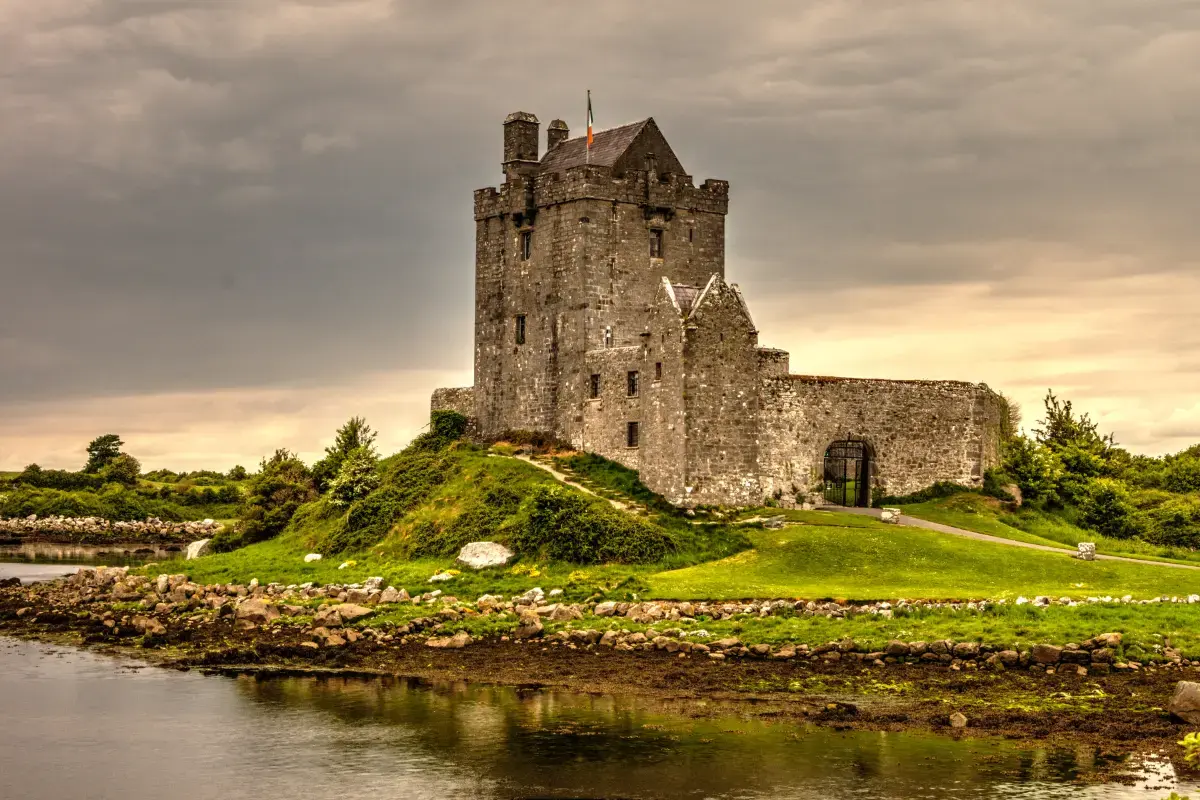
Cost of Living & Housing in Ireland
The cost of living and housing in Ireland depends on a number of factors. Generally, Dublin has one of the highest costs of living and housing in Ireland. The cost of living in Dublin is around 15% higher than the national average, while rent prices are 20% higher. In cities like Cork, Galway, and Limerick, rents are higher than the average. Accommodation is the biggest expense. Renting in Dublin can cost anywhere from €700 to €1600 per month depending on size, location, and amenities. Outside of Dublin, rent prices are generally lower ranging from €400 to €900 per month. The cost of utilities such as electricity, gas, and internet can range from €150 to €200 per month. Additional services like furniture, water bills, and waste disposal may need to be factored in to your budget. The cost of living varies depending on your lifestyle and spending habits. Prices for basic goods, such as food, clothes, and everyday items, can range from €150-€200 for one person per month. Eating out and entertainment are additional costs to consider. Prices for cinema tickets, concerts, and other activities vary from city to city, with Dublin typically being more expensive. Overall, cost of living and housing in Ireland is higher than other European countries, particularly in Dublin where prices are significantly higher. It is important to define a budget before moving to Ireland to ensure it fits your lifestyle and needs.
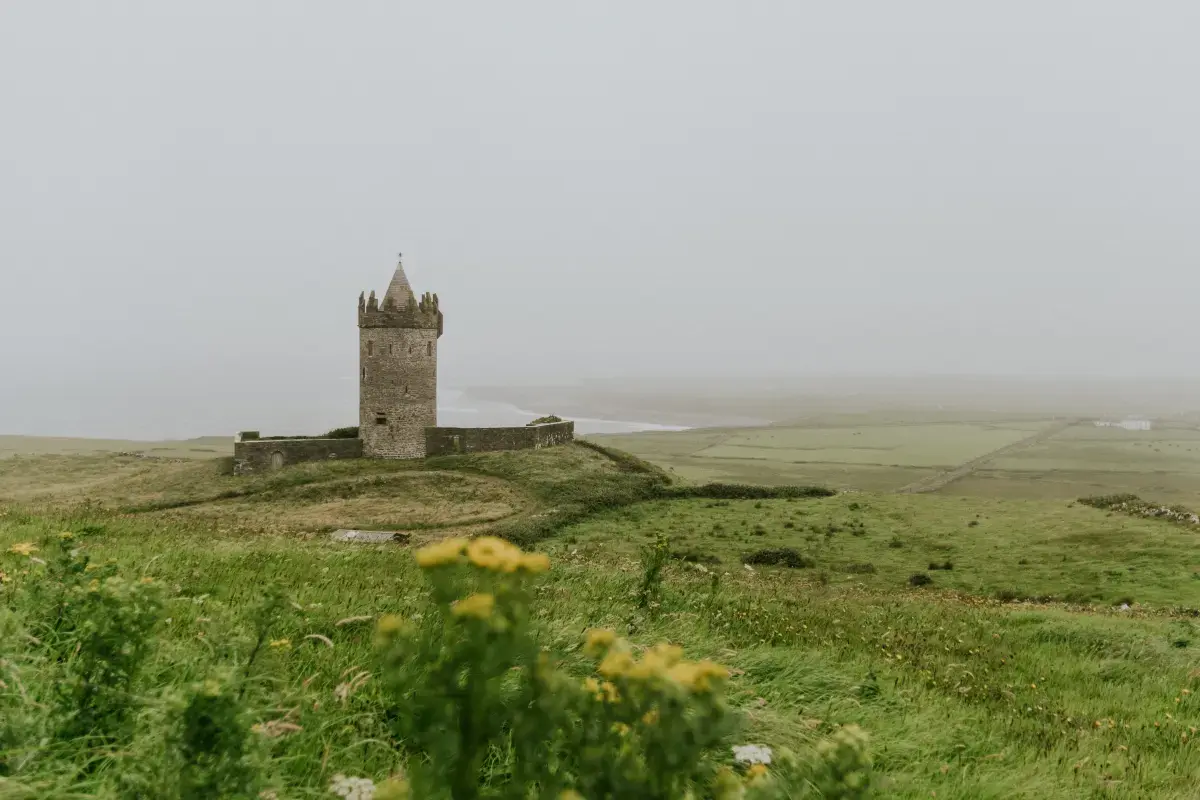
Finding a Job in Ireland from Overseas as a Foreigner?
Use our Job hunting & job seeking guide to help your job searching easier.

The Best Rated Top 20 Recruitment Agencies in Ireland
When searching for a Job from Overseas, reaching out to established Recruitment Agencies can help in your Job Search in Ireland

What are the Best job boards in Ireland
Jobseekers searching for jobs in Ireland find the below job portals in in Ireland as the best job websites for finding employment in in Ireland
Best International Removals Companies to/from Ireland
When the move to Ireland gets closer, finding local and international removals companies that suit your requirements are critical. Find a list of the best companies Near You.

Expat info about living in
Don't just take our word for it.
Use the Best Forums in Ireland to obtain all the independent advise about moving, living & working in Ireland

Immigration Advice and Visa InformationIrish
Need assistance with obtaining the correct Visas and Work Permits in Ireland.
- Get expert advice to make the move to Ireland as easy as possible

Find Trusted Local Home Services
When you arrive, understanding the Best Local Services to help with your odd jobs and tasks around the home is essential.

Best Areas to Live in Ireland
Popular towns, cities and regions that are proving popular with migrants moving to Ireland
Study and Higher Education in Ireland
Search our list of all universities in Ireland to help your reach your educational goals.
- Find the Best University in Ireland that suits your needs

Featured Locations
Frequently Asked Questions
- Construction
- Business Analysis
- Web & App Development
- Animation
- Nursing
- Teaching
- Engineering
- Marketing
- Plumbing
- Carpentry
- Software Engineer
- Data Analyst
- Hospitality Staff
- Builders
- Full-time
- Part-time
- Permanent
- Freelance
- Gig Jobs
- Contract
- Weekend work
- Out of Hours
- Night shift
- Casual
- Temporary
- Remote
- Work From Home
- Work From Anywhere
- Telecommuting
- Flexible
See here for more Help & Support questions
